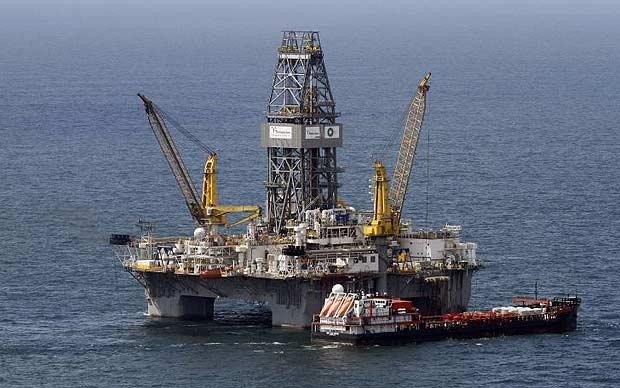The country's oil production is likely to face some threats if measures are not put in place to review some laws guiding the industry, the Public Interest and Accountability Committee (PIAC) has revealed in an assessment report on 10 years petroleum revenue management in Ghana.
This could impact on both local and international activities.
Some of the concerns that could cause the industry includes the growing discussion of energy transition and the impact of the African Continental Free Trade Agreement (AfCFTA) on local content legislation, a situation that has already begun affecting revenue generation from the sector.
This the report highlighted its review in order to cater for the AfCFTA.
Speaking at the launch of the report, Chairman of PIAC, Professor Kwame Adom Frimpong called on stakeholders to intervene as soon as possible with some reviews to both policies and regulations in the petroleum upstream sector.
“We shouldn’t forget the African Continental Free Trade Agreement is in existence and that the local content regulations must be re-looked at as soon as possible. Also the recent conversations on the energy transition which has begun impacting on revenue inflows from the sector must also be taken into consideration because production will be heavily affected.”
Responding to some of the recommendations, a Deputy Minister of Energy, Andrew Agyaper Mercer, admitted that although there may be challenges, work has begun to correct most of the concerns raised.
“Indeed it’s a good observation, but some of these calls are coming a bit too late because we have done some reviews to some of the regulations and more are ongoing. So we can accommodate some other concerns” he said.
The report also revealed that Ghana earned about $6.55 billion from oil and gas production by the end of 2020, equivalent to 9.97% of Gross Domestic Product.
Out of this amount, the Annual Budget Funding Amount (ABFA) has been allocated the highest amount of $2.6 billion (40%) over the period.
This is followed by the Ghana National Petroleum Cooperation (GNPC) which has received $2.0 billion (30%); the Ghana Stabilisation Fund (GSF) receiving an amount of $1.39 billion (21%) of total revenues; whereas the Ghana Heritage Fund (GHF) has received $586 million (9%) of the total allocation.
Latest Stories
-
#Manifesto debate: NDC to enact and pass National Climate Law – Prof Klutse
4 mins -
‘Everything a manager could wish for’ – Guardiola signs new deal
14 mins -
TEWU suspends strike after NLC directive, urges swift resolution of grievances
21 mins -
Netflix debuts Grain Media’s explosive film
48 mins -
‘Expired’ rice scandal: FDA is complicit; top officials must be fired – Ablakwa
1 hour -
#TheManifestoDebate: We’ll provide potable water, expand water distribution network – NDC
2 hours -
IPR Ghana@50: Pupils educated to keep the environment clean
2 hours -
PenTrust CEO named ‘Best Pensions CEO’, company wins ‘Scheme Administrator Award’ at Ghana Accountancy & Finance Awards 2024
2 hours -
Alan Kyerematen’s ‘Brighter Future for Health Professionals’ in Ghana Revealed in Bono
2 hours -
#TheManifestoDebate: NPP will ensure a safer, cleaner and greener environment – Dr Kokofu
2 hours -
2024 Election: Police to deal with individuals who will cause trouble – IGP
2 hours -
Seychelles President’s visit rekindles historical and diplomatic ties with Ghana
3 hours -
Election 2024: EC destroys defective ballot papers for Ahafo and Volta regions
3 hours -
2024 Election: I am sad EC disqualified me, but I endorse CPP’s candidate – PNP’s Nabla
3 hours -
I want to build a modern, inclusive country anchored by systems and data – Bawumia to CSOs
3 hours

